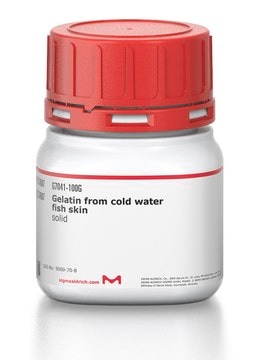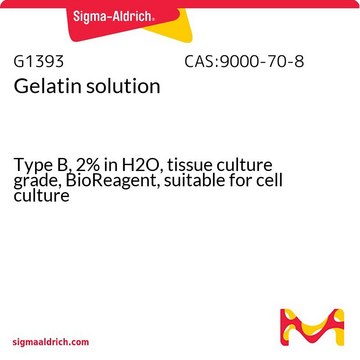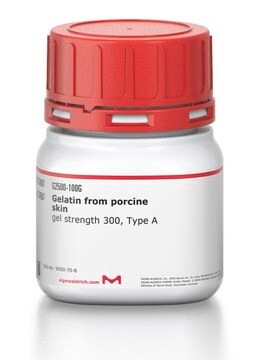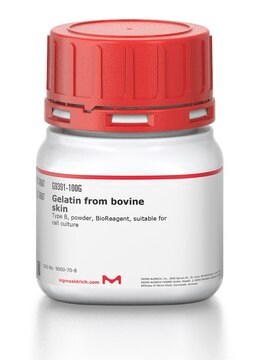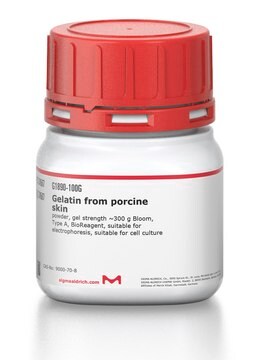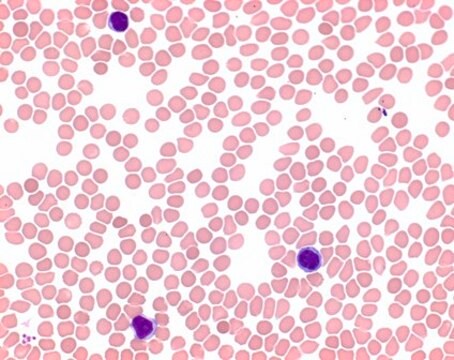935425
Gelatin from cold water fish skin
low endotoxin
About This Item
Produits recommandés
Niveau de qualité
Forme
powder (chunks or fibers)
Impuretés
<10 CFU/g Bioburden (fungal)
<10 CFU/g Bioburden (total aerobic)
125 EU/g Endotoxin
Couleur
white to pale yellow
Température de stockage
2-8°C
Description générale
Application
- Hydrogels
- Tissue engineering
- Bioprinting
- Drug delivery system
Caractéristiques et avantages
- Naturally derived polymer
- Low gelling and melting points
- Thermoreversible gelling properties
- Low endotoxin and low bioburden
Produit(s) apparenté(s)
Code de la classe de stockage
11 - Combustible Solids
Classe de danger pour l'eau (WGK)
nwg
Point d'éclair (°F)
Not applicable
Point d'éclair (°C)
Not applicable
Faites votre choix parmi les versions les plus récentes :
Certificats d'analyse (COA)
It looks like we've run into a problem, but you can still download Certificates of Analysis from our Documents section.
Si vous avez besoin d'assistance, veuillez contacter Service Clients
Déjà en possession de ce produit ?
Retrouvez la documentation relative aux produits que vous avez récemment achetés dans la Bibliothèque de documents.
Notre équipe de scientifiques dispose d'une expérience dans tous les secteurs de la recherche, notamment en sciences de la vie, science des matériaux, synthèse chimique, chromatographie, analyse et dans de nombreux autres domaines..
Contacter notre Service technique
